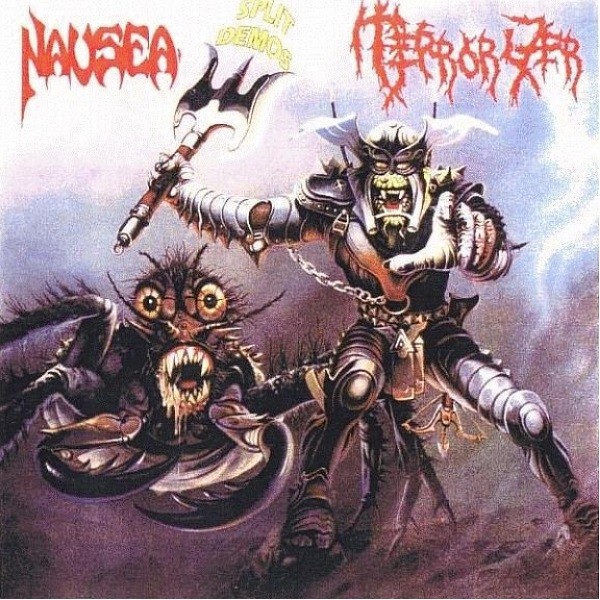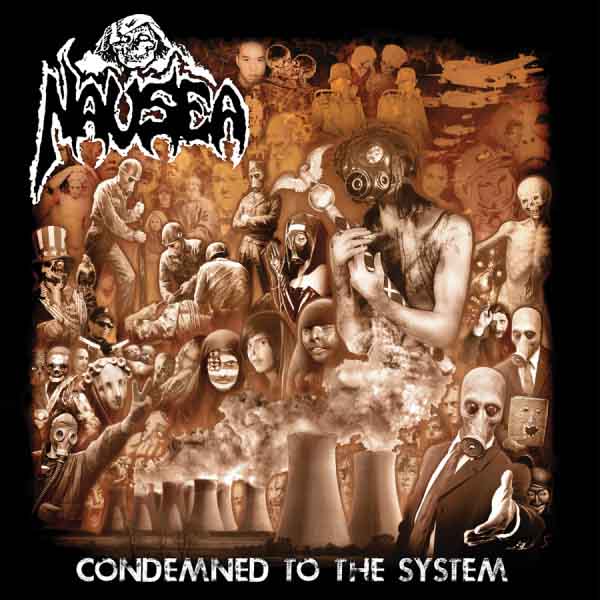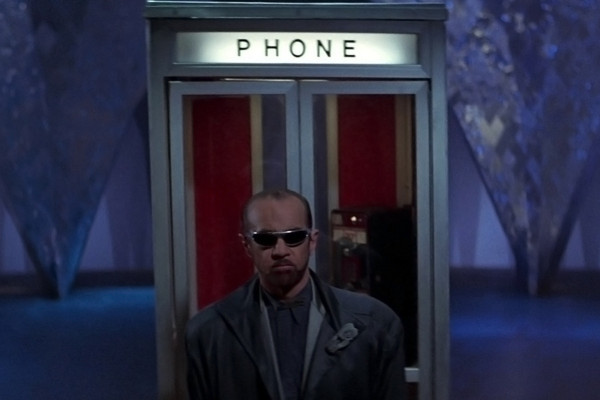For those who did not get a chance to own the original demo tapes, or simply desire them on a newer and more robust medium, this disc consisting of the Terrorizer demo from 1987 and the Nausea demo from the following year reveals the grindcore and punk giants at approximately the time when the classic World Downfall was released. These two bands share personnel, but take radically different approaches: Terrorizer adopts the angular riffing and cadenced percussion of metal, where Nausea keeps the syncopated guitar rhythms and open initial intervals of punk. For those who have heard the Terrorizer release, few surprises await on the demo, which essentially showcases the same tracks in a slightly less focused form with less vocal savagery. However, these songs also have more space to breathe, which makes this demo often a better listening experience than the album, which in the Morbid Angel style concentrates on hard-hitting tight composition and production, at the expense of some of the organic restlessness of the original.
Nausea on the other hand provides simply what every person wishes their punk bands would sound like, much as Slayer did the same for metal. This unruly music spills out of boundaries and transgresses every convention while remaining simple and keeping songs focused around a rhythm and vocal hook that makes them hummable while remaining savage. It sounds more militant than the Euro-punk of the day and more like the Cro-Mags from New York, but like a metal band zeroes in on the changes between riffs to achieve a kind of theatrical-Wagnerian effect, which takes punk from the verse-chorus loop into a kind of presentation that gives depth to its alienation. Full of energy and yet pointed toward a goal that is more personal artistic outrage than ideology, Nausea takes the basic outlook of punk and turns it up while making it more listenable than the spotty, erratic and often haphazard bands of the later punk era, or worse, the “post-hardcore” bands that combined random riffs in carnival music or dinner theater style.
Released as a split demo tape in 1991, these recordings see the light of day again with this 2012 CD re-issue by forces unknown. Sound quality remains good although thankfully the re-issue has not been remastered or had volume fiddled with in any way, which preserves the tone and room sound of these demos. This means the listener must adjust the dial; you suffer (but why?) because this is a better outcome than sterile reproductions which are more convenient but destroy depth of sound. These do not sound like a nostalgia trip, but more a journey inside the inner 17-year-old of every listener that likes intense music that sounds like it came from a garage or backyard party with a message that perhaps few will understand but many will enjoy.
2 Comments



